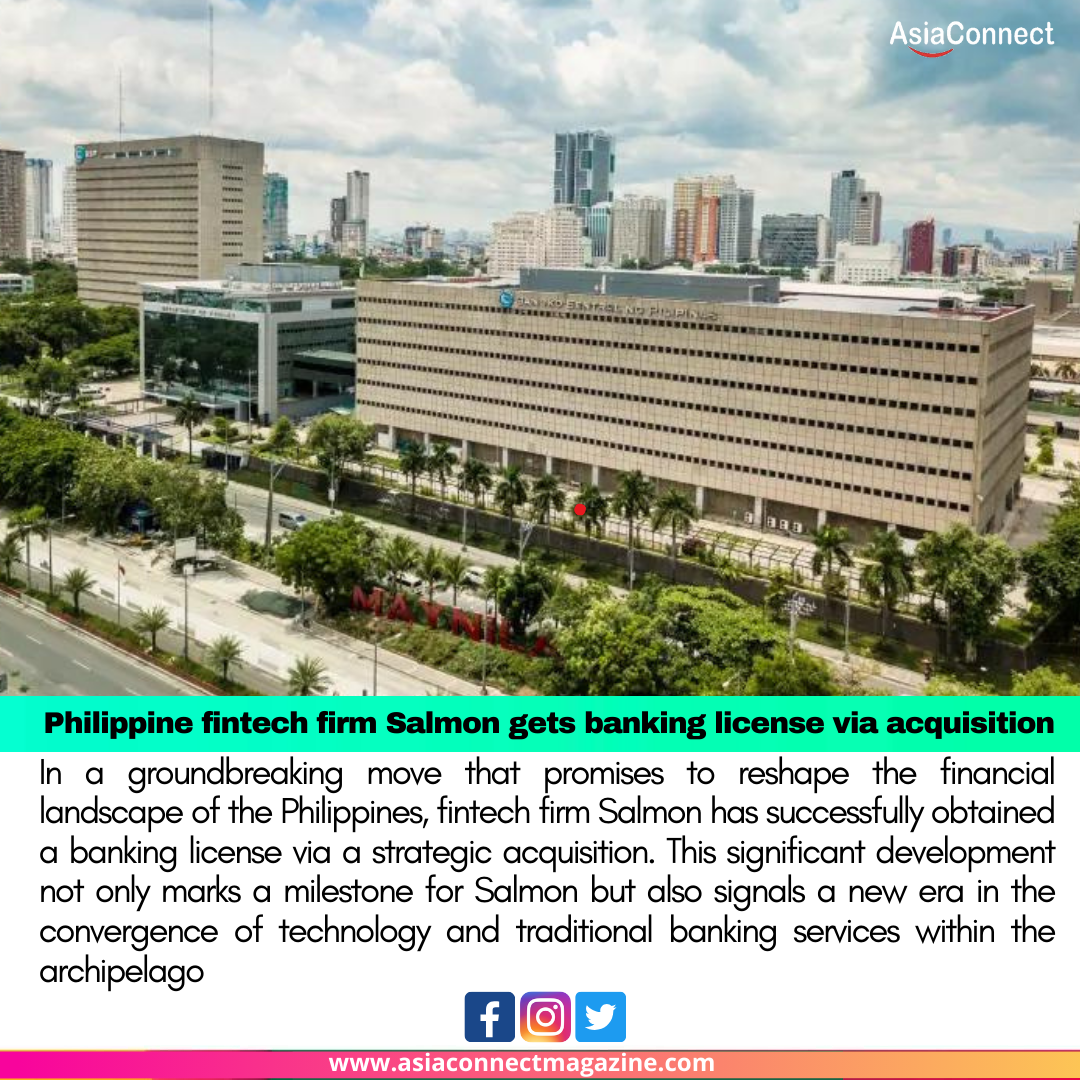In a groundbreaking move that promises to reshape the financial landscape of the Philippines, fintech firm Salmon has successfully obtained a banking license via a strategic acquisition. This significant development not only marks a milestone for Salmon but also signals a new era in the convergence of technology and traditional banking services within the archipelago.
1. The Evolution of Salmon Fintech: Salmon, a dynamic player in the Philippine fintech arena, has been steadily carving its niche with innovative digital financial solutions. From mobile banking services to cutting-edge payment solutions, Salmon has been at the forefront of transforming the way Filipinos engage with their finances.
2. Strategic Acquisition for Banking License: The acquisition that facilitated Salmon’s foray into traditional banking was a strategic move designed to augment its capabilities and extend its offerings. By securing a banking license through this acquisition, Salmon has positioned itself to offer a more comprehensive suite of financial services, bridging the gap between digital innovation and traditional banking.
3. Expanding Financial Inclusion: The acquisition of a banking license aligns with Salmon’s commitment to enhancing financial inclusion in the Philippines. By integrating traditional banking services with its existing fintech platform, Salmon aims to reach a broader spectrum of the population, including those who may have been underserved by conventional banking institutions.
4. Strengthening Digital Banking Services: With the new banking license in hand, Salmon is poised to strengthen its digital banking services. This includes the expansion of its mobile banking app, improved online customer experiences, and the introduction of features that leverage cutting-edge technology to enhance the overall banking journey for users.
5. Meeting Regulatory Requirements: Securing a banking license is no small feat and involves rigorous regulatory scrutiny. Salmon’s successful acquisition reflects not only its commitment to compliance but also the acknowledgment by regulatory authorities of the company’s ability to uphold the standards required for traditional banking operations.
6. Competition in the Fintech Landscape: The move into traditional banking positions Salmon as a formidable player in the evolving fintech landscape of the Philippines. As fintech companies increasingly bridge the gap with traditional banking services, competition in the sector is expected to intensify. Salmon’s strategic move positions it well to navigate this landscape and emerge as a key player in the financial services sector.
7. Customer-Centric Approach: A key strength of Salmon has been its customer-centric approach. With the acquisition of a banking license, Salmon aims to leverage its customer relationships to offer tailored banking solutions that meet the diverse needs of its user base. This includes personalized lending, savings, and investment products designed to empower customers in their financial journey.
8. Future Outlook: The acquisition of a banking license marks a significant chapter in Salmon’s growth trajectory. As it continues to evolve, Salmon is expected to focus on deepening its roots in both the fintech and traditional banking spheres. The company’s ability to navigate the convergence of these two worlds will likely play a pivotal role in shaping the future of financial services in the Philippines.
Conclusion: Salmon’s acquisition of a banking license is a testament to the transformative power of fintech in the financial services landscape. As the Philippines embraces the synergy between technology and traditional banking, Salmon’s strategic move positions it as a trailblazer in this space. The company’s ability to navigate regulatory challenges, coupled with its commitment to financial inclusion and innovation, sets the stage for a compelling future where Salmon plays a pivotal role in shaping the financial experiences of Filipinos across the archipelago.





